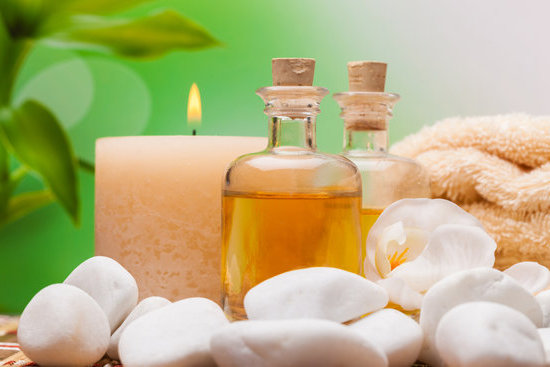Aromatherapy, the practice of using essential oils for therapeutic purposes, has gained popularity in recent years for its potential health benefits. Many pregnant women may wonder, “Is aromatherapy safe while pregnant?” This article will explore the safety concerns and risks associated with using essential oils during pregnancy.
Aromatherapy works by inhaling or applying essential oils to the skin, which can have various effects on the body and mind. These oils are believed to have properties that can promote relaxation, reduce stress, alleviate nausea, and even aid in pain relief. However, it is important to understand how essential oils interact with the body before incorporating them into your prenatal routine.
While aromatherapy can offer many benefits for pregnant women, there are also safety concerns that need to be addressed. Some essential oils may pose potential risks during pregnancy if not used properly. It is crucial to be aware of these risks and guidelines for safe use to ensure a healthy pregnancy. To make informed decisions about utilizing aromatherapy during pregnancy, consulting with healthcare providers is recommended.
The Science Behind Aromatherapy
Aromatherapy involves the use of essential oils derived from plants to promote physical and psychological well-being. These essential oils are known for their therapeutic properties, which can have a range of effects on the body and mind. The science behind aromatherapy lies in the compounds found in these oils, which can be inhaled or absorbed through the skin to produce various benefits.
How Essential Oils Work
Essential oils contain volatile compounds that are believed to interact with the olfactory system when inhaled. These molecules can stimulate the receptors in our nasal cavity, sending signals to the brain that can affect emotions, mood, and even physical sensations. Some essential oils may also have direct effects when absorbed into the bloodstream through topical application.
The Power of Aromatherapy
Different essential oils have unique properties that can influence different systems within the body. For example, lavender is often used for its calming effects, while peppermint is known for its invigorating properties. By understanding how these essential oils work on a physiological level, individuals can harness the power of aromatherapy to support their health and well-being throughout various life stages.
Combining Science and Intuition
While there is scientific evidence supporting the effectiveness of certain essential oils for specific conditions, it is also important to consider individual preferences and responses to different scents. Aromatherapy is a holistic practice that combines both scientific knowledge and personal intuition when selecting oils for use. By learning more about how essential oils work and experimenting with different blends, individuals can personalize their aromatherapy experience to better meet their needs during pregnancy or any other stage of life.
Safety Concerns
Aromatherapy is a holistic healing treatment that involves the use of natural plant extracts to promote health and well-being. Essential oils are commonly used in aromatherapy to target various physical and emotional issues. However, there are safety concerns surrounding the use of essential oils, especially during pregnancy. Many expectant mothers wonder, “Is aromatherapy safe while pregnant?”.
It is crucial for pregnant women to exercise caution when using aromatherapy due to the potent nature of essential oils. Some essential oils have properties that could potentially harm the developing fetus or cause adverse effects on the mother. For example, certain essential oils like cinnamon, rosemary, and clary sage are known to stimulate contractions and should be avoided during pregnancy as they may lead to complications.
To ensure the safety of both mother and baby, it is recommended for pregnant women to consult with their healthcare providers before incorporating aromatherapy into their routine. Additionally, it is advised to dilute essential oils properly and avoid using them undiluted on the skin during pregnancy. Following these guidelines can help minimize any potential risks associated with aromatherapy during this delicate time.
| Important Points | Details |
|---|---|
| Consultation with Healthcare Providers | It is crucial to seek advice from healthcare providers before using essential oils during pregnancy. |
| Dilution of Essential Oils | Pregnant women should always dilute essential oils properly before applying them topically. |
| Avoid Certain Essential Oils | Avoid using essential oils like cinnamon, rosemary, and clary sage known to stimulate contractions. |
Potential Risks of Aromatherapy During Pregnancy
During pregnancy, many women turn to natural remedies like aromatherapy to alleviate common discomforts such as nausea, stress, and insomnia. However, there is a concern about the safety of using essential oils during this delicate time. It is crucial to understand the potential risks associated with aromatherapy while pregnant to make informed decisions for your well-being and that of your unborn child.
Here are some potential risks to consider when using aromatherapy during pregnancy:
- Hormone Disruption: Some essential oils have properties that may mimic hormones or affect hormonal balance in the body, which could potentially impact the developing fetus.
- Skin Sensitivities: Pregnant women may experience heightened skin sensitivities, making them more prone to allergic reactions or irritation from essential oils applied topically.
- Uterine Contractions: Certain essential oils are known to stimulate contractions in the uterus, which could pose a risk of premature labor or miscarriage if used in excess.
To ensure the safety of using aromatherapy while pregnant, it is essential to follow guidelines and precautions recommended by healthcare providers. Always consult with your obstetrician or midwife before incorporating any new essential oils into your prenatal routine. Additionally, it is best to avoid ingesting essential oils and opt for diluted topical application or indirect inhalation methods instead. Be cautious of strong concentrations and limit exposure time to reduce any potential risks.
Guidelines for Safe Aromatherapy Use During Pregnancy
Aromatherapy is a popular practice that involves using essential oils for their therapeutic benefits. Many people turn to aromatherapy to promote relaxation, decrease stress, and alleviate various symptoms. However, when it comes to pregnant women, safety is a primary concern. The question of “is aromatherapy safe while pregnant” is a valid one that requires careful consideration.
Pregnant women should exercise caution when using essential oils for aromatherapy purposes. While some essential oils are generally considered safe during pregnancy when used in moderation, others can potentially pose risks to both the mother and the developing fetus. It’s important to understand which essential oils are safe to use during pregnancy and which ones should be avoided altogether.
One crucial aspect to consider when using aromatherapy during pregnancy is the method of application. Inhalation methods like diffusing essential oils or adding them to a bowl of steaming water are generally safer than applying them topically on the skin.
Pregnant women should also dilute essential oils in a carrier oil before use and perform a patch test to check for any possible allergic reactions or sensitivities. Consulting with a healthcare provider before incorporating aromatherapy into your prenatal routine is highly recommended to ensure the safety of both you and your baby.
| Essential Oil | Safety Level |
|---|---|
| Lavender | Generally considered safe during pregnancy |
| Chamomile | Safe when used in moderation |
| Peppermint | Avoid use in large amounts as it may cause contractions |
Best Essential Oils for Pregnancy
Choosing Safe Essential Oils
When it comes to using essential oils during pregnancy, safety should be the top priority. While there are many essential oils that are generally safe for use during pregnancy, some should be avoided due to potential risks. It is crucial to do thorough research and consult with healthcare providers before incorporating any essential oil into your prenatal routine.
Lavender Oil
One of the best essential oils for pregnancy is lavender oil. Known for its calming and soothing properties, lavender oil can help alleviate stress and promote relaxation during pregnancy. It is also safe for use in various ways, such as diffusing it in a room or adding a few drops to a warm bath.
Chamomile Oil
Another excellent option for pregnant women is chamomile oil. Chamomile oil is known for its anti-inflammatory and sedative effects, making it beneficial for reducing anxiety and promoting better sleep quality. Whether used in a massage oil or added to a vaporizer, chamomile oil can be a valuable addition to your prenatal wellness routine.
How to Incorporate Aromatherapy Into Your Prenatal Routine
During pregnancy, many women look for safe and natural ways to alleviate common discomforts such as morning sickness, fatigue, and stress. Aromatherapy can be a gentle and soothing option to incorporate into your prenatal routine. Using the right essential oils in the correct manner can provide relaxation, promote better sleep, and enhance overall well-being during this special time. However, it is crucial to follow safety guidelines to ensure that aromatherapy is used appropriately while pregnant.
To safely incorporate aromatherapy into your prenatal routine, consider these guidelines:
- Avoid using essential oils directly on the skin without proper dilution. Always mix essential oils with a carrier oil before applying them topically.
- Choose high-quality essential oils from reputable sources to ensure purity and quality.
- Limit exposure to strong scents by diffusing essential oils in well-ventilated areas for short periods of time.
While aromatherapy can offer benefits during pregnancy, there are certain essential oils that should be avoided or used with caution due to potential risks. It is important to consult with your healthcare provider before incorporating any new wellness practices into your routine. Some essential oils may stimulate contractions, affect hormone levels, or cause allergic reactions, so it is best to err on the side of caution when selecting which oils are safe for use during pregnancy.
Incorporating aromatherapy into your prenatal routine can be a relaxing and enjoyable experience when done safely and mindfully. By following recommended guidelines and consulting with your healthcare provider, you can make informed decisions about which essential oils to use during pregnancy to support your overall well-being and enhance the joys of this transformative journey.
Consultation With Healthcare Providers
When it comes to the question, “Is aromatherapy safe while pregnant?” it is crucial for expectant mothers to consult with their healthcare providers before incorporating essential oils into their prenatal routine. Healthcare providers have a comprehensive understanding of each individual’s medical history and can provide personalized recommendations based on that information. This consultation is essential to ensure the safety and well-being of both the mother and the developing baby.
During a consultation with a healthcare provider, pregnant women can discuss any concerns or potential risks associated with aromatherapy use during pregnancy. It is important to be transparent about any existing health conditions or allergies, as some essential oils may trigger adverse reactions in certain individuals. By working closely with a healthcare provider, expectant mothers can make informed decisions about which essential oils are safe to use and how to incorporate them into their daily routine.
Additionally, healthcare providers can offer valuable guidance on dosage, application methods, and frequency of use when it comes to aromatherapy during pregnancy. They can also recommend specific essential oils that are known to be safe for expectant mothers, such as lavender, chamomile, and ginger. By following the recommendations provided by healthcare professionals, pregnant women can enjoy the benefits of aromatherapy while minimizing any potential risks to their own health and the health of their baby.
Conclusion
In conclusion, the question of “Is aromatherapy safe while pregnant?” is one that requires careful consideration and research. Aromatherapy can offer numerous benefits for pregnant women, such as relieving stress, reducing nausea, and promoting better sleep. However, it is essential to understand the science behind how essential oils work and be aware of any potential risks associated with aromatherapy during pregnancy.
While some essential oils can be safely used during pregnancy, others may pose risks to both the mother and baby. It is crucial for expectant mothers to consult with their healthcare providers before incorporating aromatherapy into their prenatal routine. Healthcare providers can offer guidance on which essential oils are safe to use, as well as provide recommendations on proper dosages and application methods.
Ultimately, making informed decisions about using aromatherapy during pregnancy is key to ensuring a healthy outcome for both mother and baby. By following guidelines for safe aromatherapy use during pregnancy and seeking guidance from healthcare providers, expectant mothers can reap the benefits of this holistic practice while minimizing any potential risks. Remember that every pregnancy is unique, so it’s important to prioritize safety and always consult with a medical professional when in doubt.
Frequently Asked Questions
What Essential Oils Should Be Avoided During Pregnancy?
During pregnancy, it is generally recommended to avoid essential oils that are known to stimulate menstruation or contractions, such as basil, cinnamon, clove, fennel, jasmine, juniper, myrrh, rosemary, sage, and thyme. It’s essential to consult with a healthcare provider before using any essential oils during pregnancy to ensure safety for both mother and baby.
Is Aromatherapy Safe in Pregnancy?
Aromatherapy can be safe during pregnancy when done with caution and under the guidance of a qualified professional. Certain essential oils can be beneficial for alleviating common pregnancy symptoms like nausea, fatigue, stress, and insomnia. However, it is crucial to use diluted oils in moderation and avoid those considered risky during pregnancy.
What Smells Should You Avoid While Pregnant?
While pregnant, it is advisable to steer clear of strong synthetic fragrances found in perfumes or household products like air fresheners, scented candles, and cleaning agents. These artificial smells can trigger nausea or headaches in some pregnant women due to heightened sensitivity to odors.
Opting for natural scents like citrus fruits or lavender may be more tolerable alternatives during this time.

Are you looking for a natural way to improve your health and wellbeing?
If so, aromatherapy may be the answer for you.





